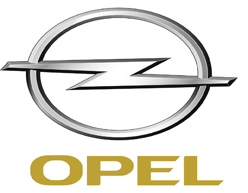Russians hail their trilateral consortium’s eleventh hour clinch of Opel deal as ‘a-one-in-life time opportunity’

MOSCOW, Russia — The Russian participants in the international consortium that finally clinched the Opel deal at he end of May have lauded the acquisition as ‘a-one-in-life time opportunity’ that will enable them to use the GM’s advanced technologies in the German automaker to modernize and upgrade their local auto industry to global standards.
According to the German Chancellor’s office, the international consortium, comprising the Austrian-Canadian Magna International, Russian largest bank Sberbank and automaker GAZ Group, which is affiliated with Oleg Deripaska’s Basic Element holdings, closed the deal to acquire the Germany-based Opel, one of GM’s Europe’s core assets, at the eleventh hour, after the other key suitor Italy’s Fiat, finally dropped out of the bid, citing its unwillingness to assume ‘special’ risks and the coaster-roller nature of the negotiations, for its decision.
Under the deal, the alliance pledges to preserve most Opel jobs, approximately 25,000 workers or about 90% of the current workforce, in Germany, while the German government promises to instantly provide the ailing company a short-term loan of 1.5bln.euros and a further state guarantee for a 4.5bln.euros loan for five years. According to the preliminary draft of the company’s new ownership structure, 35% of Opel stake will now belong to Sberbank, which is acting as the financial guarantor of the alliance, Magna International will own 20%, Opel’s workers union will get 10%, while the rest stake will be retained by the present owner, the battered U.S. GM, which is currently hanging on the brink of bankruptcy in the United States.
Commenting on the deal, Sberbank president and CEO German Gref noted that his bank sees the Opel acquisition as a rare business opportunity to restructure the whole of the Russian auto industry. “We, as a bank, are interested in this deal as it presents a good chance for Russia to acquire on the cheap one of the most technologically advanced automakers today on the global markets that will enable us to restructure the Russian auto industry.”
According to M&A experts, the chances of concluding such deals in the precrisis booming period, and especially with the participation of Russian companies, were extremely low. A key role in this deal thus belongs to the current global economic and financial crises that have forced the ‘proud’ German and U.S. owners of these auto stakes into more constructive negotiations over the fates of their battered assets, a trend that opened the door for the deep-pocketed Russian investors, who still have their most of their assets/finances much intact despite the current crisis. It is a well-known fact that when companies’ basic instinct of self-preservation is automatically activated, the nationalities of the rescuing investors or the countries of origins of such investors’ capital often take the last spot on the priority lists of stakeholder/companies on the brink of inevitable bankruptcy.












 Web design,
Web design,